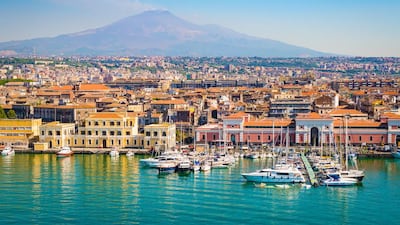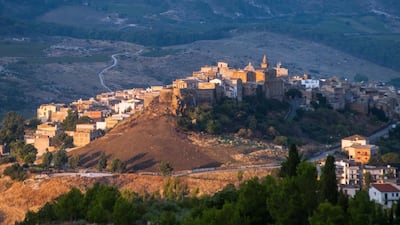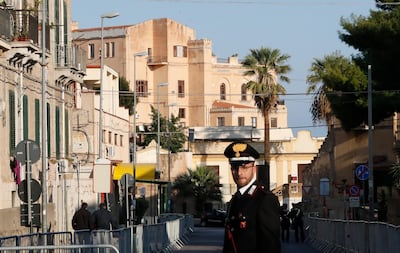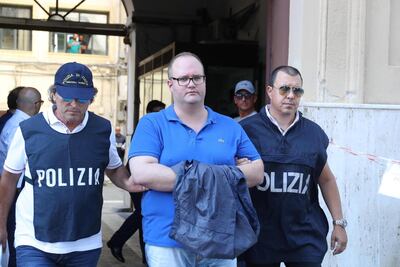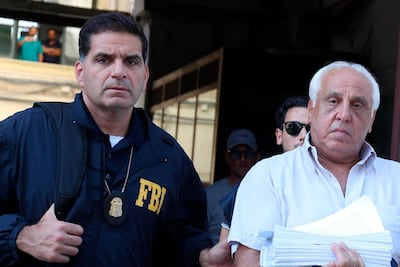At the crossroads of the Mediterranean, Sicily has lured hordes of visitors in its 2,500-year history; today, it is enticing ethical tourists who do not want to line the pockets of organised criminals.
Challenging the stereotypical portrayal of Sicilians as mobsters, social enterprises - businesses that aim to do good while making profits - are steering visitors toward mafia-free hotels, restaurants and shops.
In the last decade AddioPizzoTravel, the social enterprise offshoot of an anti-mafia grassroots movement, has been working with locals determined to shake up the status quo by declining to pay the "pizzo" - Sicilian slang for protection money.
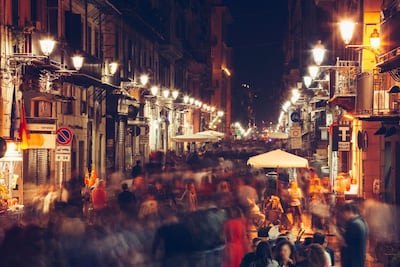
According to a 2012 study, nearly three-quarters of Sicily's businesses do pay.
AddioPizzo also proposes tours geared toward discovering the island's natural and cultural treasures while learning about its history of civic resistance to the mafia, as well as the stories of activists and magistrates who paid with their lives, according to the Thompson Reuters Foundation.
"We wanted to promote the beauty of our landscapes and our gastronomy," said Dario Riccobono, a founder of AddioPizzo, adding "without the stereotypes that are usually attached to Sicily".
"Also, the beauty of the people who had the courage to say no to the mafia."
Beyond ethical holidaymakers, such initiatives have attracted educators from Italy and elsewhere keen to raise awareness of the anti-mafia movement among their students.
It all began in 2004, when a group of young friends in Palermo, Sicily's capital, plastered their home town with stickers declaring: "An entire people that pays the pizzo is a people without dignity."
The pizzo is not just a cash payment but an implacable mechanism that swallows up businesses and assimilates them into a far-reaching criminal network.
In exchange for lower payments, the mafia may impose hiring its associates or using suppliers connected with it, effectively gaining control of the business.
Those who refuse often receive death threats or become the victims of vandalism and arson. They can even face ostracism from the local community and lose their customers.
A survey by the Rocco Chinnici Foundation found that small businesses like shopkeepers and artisans on average pay up to €600 (Dh2,451) a month in protection money, which many owners view as an inevitable business expense.
For larger firms like supermarkets and construction companies, it can reach thousands of euros.
AddioPizzo's act of defiance led to the creation of a support network linking small businesses that refused to pay the pizzo, with local consumers willingly supporting a clean economy. As word spread throughout the country and beyond, would-be visitors to Sicily began contacting the association for mafia-free travel advice, giving birth to AddioPizzoTravel in 2009.
Today the social enterprise works with a network of more than 1,000 businesses in and around Palermo, identifiable by distinctive window stickers proclaiming "I pay those who are not paying."
And far from attracting bullying extortionists, Mr Riccobono said the bright orange badges act as a deterrent because any intimidation or threat would promptly draw police and media attention.
"We were amused when we heard the confessions of mobsters-turned-informants," he said.
"The mafia prefer to stay away because they know our members wouldn't hesitate to report them to the police. We are a minority, so we are just not worth the trouble."
As for the chances of ethical businesses giving in to threats, Mr Riccobono said so far that hasn't been the case.
"In the last few years police investigations have retrieved mafia ledgers listing pizzo-paying businesses. But no one from AddioPizzo was in there."
The town of Corleone may have gained worldwide fame thanks to its connection to The Godfather book and film trilogy.
But anti-mafia association Libera prefers to focus on creating job opportunities for local unemployed people, who might otherwise become ensnared in the net of organised crime. Its affiliate network of social enterprises cultivates organic crops on lands confiscated from the mafia, and has branched out into offering tours and farm stays.
Visitors can board at working farms, stock up on locally produced organic wine, pasta and preserves and take guided trips to stone villages perched atop the rugged hills in the Palermo hinterland.
"Such initiatives show that crime-free jobs make sense from an economical point of view," said Lillo Gangi, a Libera activist. "We need to give concrete opportunities if we want to make impactful changes.
"Otherwise, it's all too easy for an unemployed 18-year-old to end up earning 3000 euros a month as a drug dealer for the mafia," he added.
Still, anti-mafia activists acknowledge that there remains more work to do to spread the footprint of ethical tourism in Sicily, especially as most of the island's economy remains in the firm grip of organised crime.
According to a 2012 study by SOS Impresa, the anti-racket arm of Confesercenti, the Italian retailers association, around 70 per cent of the 50,000 businesses based in Sicily pay the pizzo, primarily in provinces with large urban centres such as Palermo, Trapani, Catania and Messina.

"Even though Cosa Nostra and other mafia groups in Sicily are showing signs of crisis, today many business owners refuse to admit they are paying the pizzo," said Umberto Santino, a founder of the Giuseppe Impastato Sicilian Centre of Documentation, an anti-mafia association in Palermo.
"In any case, these avenues that have opened up represent a turning point."
Indeed, the Cosa Nostra seems to be coming under increased pressure from authorities at home and much further afield.
Italian police and FBI agents arrested 19 Mafia suspects in Sicily and New York earlier this month, The Washington Post reported, in a coordinated crackdown that brought to the fore the enduring transatlantic ties between organised crime families in Italy and the United States, according to Italian authorities.
About 200 Italian police and FBI officers carried out the raids in Palermo and in the New York area. Eighteen people in Italy and one in New York were arrested.
Raids in both countries targeted links between the Cosa Nostra and US organised crime, said an Italian police statement.
Among those arrested was Thomas Gambino, considered by the FBI to be a key player. Police also arrested members of the Inzerillo family, said Italian prosecutor Roberto Tartaglia, AFP reported.
During their investigation, police said, they secretly filmed Gambino holding a covert meeting with the head of the Inzerillo family on a rubber dinghy off the coast of Palermo last summer. The Inzerillo crime family has been trying to rebuild after the 2017 death of its enemy, Boss of Bosses Salvatore "Toto" Riina, police said.
The investigation, dubbed "New Connection" by the Italian police, revealed "the strong bond established between Cosa Nostra in Palermo and US organised crime," police said.
Others arrested include Salvatore Gambino, the mayor of Toretta, a small town outside Palermo, and Rosario “Sal” Gambino, a former New Jersey resident who was deported to his native Italy following his conviction for heroin trafficking.
